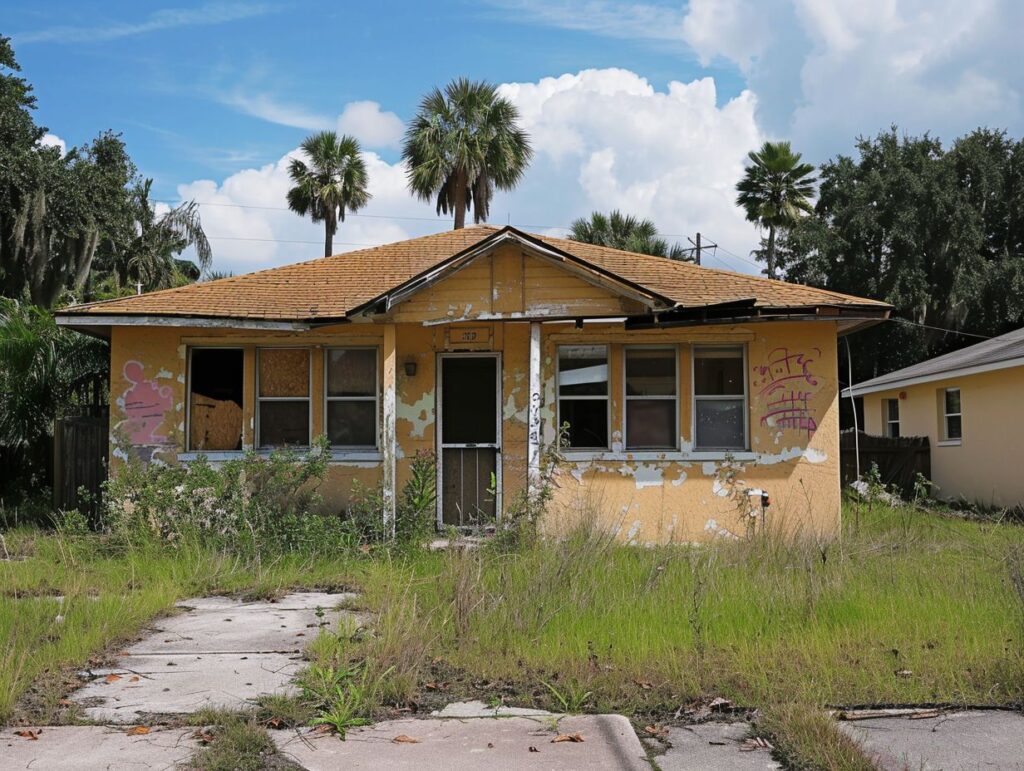Are you facing a property dispute in Florida and unsure of how to handle the situation?
This article will guide you through the common types of property disputes, steps to avoid them, and the benefits of hiring a real estate attorney.
Learn practical steps to take before purchasing a property, such as gathering evidence and negotiating with the other party.
We will also explore the laws and regulations surrounding property disputes in Florida, including statutes of limitations and legal remedies available.
Stay tuned to navigate through the complexities of property disputes effectively.
Key Takeaways:
- Property disputes in Florida can include issues such as boundary disputes, title disputes, and breaches of contract.
- To avoid property disputes, it’s important to thoroughly research a property before purchasing and to hire a real estate attorney.
- If facing a property dispute in Florida, steps include gathering evidence, negotiating, and potentially seeking mediation or filing a lawsuit.
How to Handle Property Disputes in Florida?
Managing property disputes in Florida typically follows a structured process that includes:
- Collecting evidence and documentation
- Attempting negotiation
- Considering mediation or arbitration
- If needed, initiating a lawsuit for legal resolution
Step 1: Gather Evidence and Documentation
The initial step in addressing a property dispute involves collecting all pertinent evidence and documentation, such as property boundaries, surveys, and deeds, to establish the facts of the case.
This evidence forms the basis for substantiating your claim. Essential types of evidence in property disputes include surveys carried out by licensed surveyors, official property documents from governmental agencies, land use permits, and any historical records related to the property.
These documents not only present a clear overview of the property boundaries and ownership details but also aid in understanding any zoning restrictions or easements that could impact the process of resolving the dispute. Inaccurate or incomplete documentation can weaken your position in a dispute, underscoring the significance of thorough research and precise record-keeping.
Step 2: Try to Negotiate with the Other Party
- The second step involves attempting to negotiate with the other party involved in the property dispute to achieve a mutually acceptable agreement without exacerbating the conflict.
- An effective negotiation strategy is to concentrate on common interests rather than getting caught up in differences. Taking a collaborative approach allows both parties to explore solutions that benefit everyone involved. It is essential to build trust and maintain a respectful relationship with neighbors throughout the negotiation process to promote long-term harmony.
- Once an agreement is reached, it is crucial to formalize it through legal documentation to prevent any potential future misunderstandings or disputes. This formalization can offer clarity regarding the rights and responsibilities of each party, ensuring a seamless relationship moving forward.
Step 3: Consider Mediation or Arbitration
If negotiations are unsuccessful, mediation or arbitration can be considered as alternative dispute resolution methods. These processes are often facilitated by an attorney’s office and aim to achieve a fair and timely resolution.
Mediation involves a neutral third party assisting the disputing parties in reaching a mutually acceptable agreement. It encourages open communication and the exploration of common ground. On the other hand, arbitration is a more formal process where a neutral arbitrator makes a decision after hearing both sides. Both mediation and arbitration offer confidentiality, flexibility, and quicker resolutions compared to lengthy court battles.
Attorneys play essential roles in these processes by providing legal guidance, ensuring the protection of each party’s rights, and aiding in developing solutions that comply with the law and the interests of the parties involved.
Step 4: File a Lawsuit
In situations where other solutions prove ineffective, initiating a lawsuit in court with the assistance of a real estate lawyer may be necessary to legally and conclusively resolve a property dispute.
Navigating the legal process of filing a lawsuit can be intricate, necessitating a comprehensive understanding of relevant laws and courtroom procedures. A proficient attorney plays a key role in guiding individuals through each stage, from submitting the initial complaint to representing them in court hearings. They will evaluate the case, gather evidence, and formulate a strategic legal argument to bolster the claim.
During court proceedings, the attorney will present the case, question witnesses, and engage in negotiations with the opposing party to secure a favorable outcome. Engaging legal representation can substantially enhance the likelihood of success and ensure that individuals’ rights are safeguarded throughout the litigation process.
What Are the Laws and Regulations Surrounding Property Disputes in Florida?
Florida’s laws and regulations address property disputes, encompassing legal considerations such as boundary lines, adverse possession, and the resolution process in courts.
What Are the Statutes of Limitations for Property Disputes in Florida?
The statutes of limitations for property disputes in Florida vary based on the nature of the dispute, usually falling within the range of four to seven years for most legal actions. Property owners should have a clear understanding of these time limits as they are crucial in deciding when legal actions can be initiated.
For instance, the statute of limitations for cases involving trespass or property damage may be shorter compared to cases related to breach of contract concerning property. By being aware of the relevant time limits pertaining to their circumstances, property owners can ensure they initiate legal action promptly to safeguard their rights and interests.
What Are the Legal Remedies Available for Property Disputes in Florida?
Legal remedies available for property disputes in Florida include court judgments for financial compensation, orders for specific performance, and injunctions to prevent further encroachments or violations.
Court judgments for financial compensation are typically pursued in cases where one party has incurred monetary losses as a result of a property dispute. For instance, in a breach of contract scenario where a buyer fails to pay the agreed-upon price for a property, the court may grant financial compensation to the seller to offset their losses.
Orders for specific performance, conversely, are employed when the court mandates a party to fulfill their contractual obligations, such as transferring ownership of a property.
Injunctions play a critical role in situations requiring immediate action to avert irreparable harm, like suspending construction on contested land while legal proceedings take place.
Frequently Asked Questions
How to Handle Property Disputes in Florida?
There are several steps you can take to handle property disputes in Florida:
- Gather evidence: Take photos, videos, and gather any documents that may support your claim.
- Understand your rights: Familiarize yourself with the laws and regulations regarding property disputes in Florida.
- Communicate with the other party: Try to resolve the dispute through open and productive communication.
- Consider mediation: If communication fails, consider using a neutral mediator to help come to a resolution.
- File a complaint: If all else fails, you can file a complaint with the appropriate government agency or court.
- Seek legal advice: If the dispute involves complex legal issues, it may be beneficial to consult with a lawyer.
What types of property disputes can arise in Florida?
Property disputes can arise over a variety of issues, including boundary disputes, easement disputes, landlord-tenant disputes, and disagreements over property ownership. These disputes can involve both residential and commercial properties.
What is the statute of limitations for property disputes in Florida?
The statute of limitations for property disputes in Florida varies depending on the type of dispute. For example, boundary disputes have a 4-year statute of limitations, while disputes over contracts or written agreements have a 5-year statute of limitations. It is important to consult with a lawyer to determine the specific timeframe for your particular dispute.
Can I resolve a property dispute without going to court?
Yes, it is possible to resolve a property dispute without going to court. You can try mediation or arbitration, which are alternative methods of dispute resolution that can help you come to a resolution without the need for a trial. However, if these methods are unsuccessful, you may need to go to court to resolve the dispute.
What is the role of a homeowner’s association in property disputes in Florida?
In Florida, homeowner’s associations (HOAs) have the authority to enforce rules and regulations within their communities. If your property dispute involves an HOA, they may have specific procedures in place for handling disputes. It is important to review your HOA’s bylaws and consult with an attorney for guidance.
How long does it take to resolve a property dispute in Florida?
The length of time it takes to resolve a property dispute in Florida can vary depending on the complexity of the case and the willingness of both parties to come to a resolution. Some disputes can be resolved quickly through communication and negotiation, while others may require court intervention and can take several months or even years to resolve.


























Rate this article:
Average rating 0 / 5. Vote count: 0
No votes so far! Be the first to rate this post.
No Comments yet!